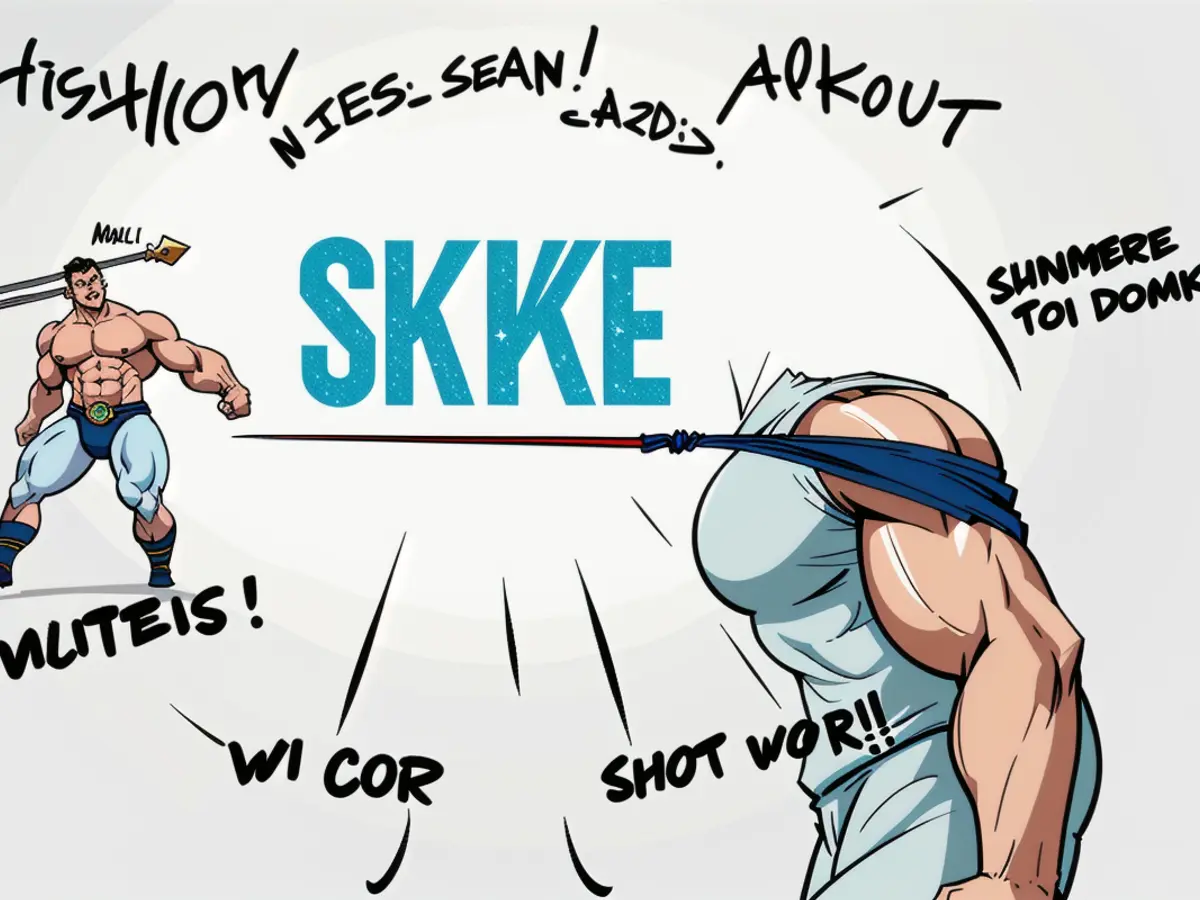The Emergence of Versatile Skill Sets: Essential Capacities to Maintain Workplace Advantage
The statement, "Jobs are transforming, even if you're not switching jobs," is a thought that sticks in your head due to its undeniable truth. The work environment is transforming at a pace never before seen. This implies that the abilities necessary five years ago might not suffice to prosper today. Moreover, it's not merely about acquiring a skill here and there. Entire jobs are being redefined, necessitating a mix of competencies—something many refer to as hybrid skills. Ponder on this. It's no longer sufficient to excel in a solitary, traditional role. For instance, customer service representatives once required strong communication skills and problem-solving abilities. Today, they're expected to be tech-savvy, capable of handling numerous software platforms, analyzing customer data to anticipate needs, and even managing online reviews and social media channels. And it's not just customer service—this metamorphosis is impacting every field.
What Are Hybrid Skills in the Workplace and Why Are They Significant?
Hybrid skills entail competence from traditionally distinct domains. Instead of being purely technical or purely soft, these skills connect both worlds. For example, a marketing professional may now need to comprehend fundamental coding to analyze website performance or employ AI tools for targeted campaigns. A financial analyst might couple their numerical skills with storytelling to present data in a manner that influences choices. These combinations make professionals not just adaptable but irreplaceable.

Research from the World Economic Forum underscores this hybrid tendency. Their Future of Jobs report emphasizes the necessity of cross-functional skills such as analytical reasoning, creativity, and digital literacy. These abilities were once just desirable, but are now indispensable for maintaining relevance.
Examples of Hybrid Skills Required to Thrive

- Data Savviness: Data analysis is no longer just for tech experts—it's a crucial ability for everyone. Regardless of whether you're analyzing consumer feedback, monitoring team performance, or assessing business outcomes, the capacity to interpret and act upon data is essential for making informed decisions and boosting success.
- Digital Platform Proficiency: Nearly every role today necessitates some level of digital knowledge. Whether it's utilizing collaboration tools, managing customer interactions, or producing content, the ability to navigate various digital platforms boosts productivity and facilitates more efficient work processes.
- Emotional Intelligence (EQ): Emotional intelligence plays a key role in almost every professional setting. From managing one's own emotions to understanding and reacting to others, EQ improves communication, collaboration, and conflict resolution, ultimately fostering better relationships and stronger teams.
- Design Thinking: This problem-solving technique is beneficial for anyone who needs to innovate or enhance processes. By focusing on the end user's needs, design thinking helps professionals in various disciplines create more effective solutions, whether in product development, customer service, or organizational improvements.
- Basic Coding Knowledge: Fundamental coding expertise is increasingly important in numerous roles, even outside of technical industries. Understanding coding basics allows you to automate routine tasks, streamline workflows, and communicate more effectively with technical teams, enhancing overall efficiency.
- Storytelling: Storytelling is a vital ability for making information engaging for others. Whether you're presenting data, persuading colleagues, or explaining a new concept, having the ability to create a compelling narrative ensures your message is clear, memorable, and actionable.
Identifying Which Hybrid Skills You Need to Develop

Determining which hybrid skills you need to develop isn't merely about following trends; it's about evaluating the unique requirements of your industry and role. Here are some practical steps you can take to pinpoint the abilities that will truly set you apart:
- Explore Developments in Your Professional Sphere: Begin by studying how your work sector is transforming. You can gather insights from research articles, industry publications, and news outlets. For instance, if you're in advertising, AI and data analytics are becoming increasingly significant. If you're in healthcare, telemedicine and digital health technologies are gaining prominence. Identify significant shifts in your field and leverage these trends to enhance your skillset.
- Investigate Job Requirements and Opponent Skills: Scrutinize job postings for positions similar to yours or your desired role. Pay close attention to the skills employers are looking for. For instance, in client care, familiarity with CRM systems, data tools, and social media management are now expected alongside traditional customer service skills. Similarly, investigate your competitors' skills. LinkedIn profiles, networking sites, and discussions with peers might offer insights into the multi-faceted skills that high-performing professionals in your line of work are building.
- Determine Your Present Strengths and Flaws: Evaluate your current abilities and experiences. Which areas could benefit from technical knowledge or soft skills development? Perhaps you struggle with data interpretation or need to improve your communication with tech teams? Recognizing your weak points helps you concentrate on the hybrid skills that will have the greatest impact on your performance and career advancement.
- Get Feedback from Mentors and Supervisors: One of the best ways to ascertain which hybrid skills to prioritize is to seek advice from mentors, supervisors, or coworkers. Request their opinion on how you can enhance your performance. A manager might suggest, "You're excellent at problem-solving, but mastering customer behavior data analysis to generate more impactful decisions would be beneficial." Valuable feedback from reliable sources can pinpoint the spots you must improve and guide you towards skills compatible with your objectives.
- Pursue Transdisciplinary Opportunities: Hybrid skills flourish when you transcend traditional department boundaries. Hunt for chances to expand beyond your current role. For example, if you work in project management, consider broadening your understanding of marketing analytics, or if you're in sales, look into obtaining basic coding skills to enhance CRM data management. These cross-disciplinary skills not only differentiate yourself but also ensure you adapt as your role evolves.

Constructing Hybrid Skills in the Workplace
Fortunately, you don't need to excel in everything instantaneously. Begin by evaluating your role and pinpointing deficiencies. Question yourself: What changes are occurring in my sector, and how can I adapt? For instance, if you're in healthcare, focus on improving your telemedicine abilities. In retail, concentrate on data-informed inventory management.
Online learning platforms like Coursera, Udemy, and LinkedIn Learning offer courses on several hybrid skills. Combine these with hands-on practice, and you'll be well on your way to becoming a more adaptable professional.
Conclusion:
The demand for hybrid skills isn't fading. As roles evolve, the individuals who can blend technical knowledge with creativity, emotional intelligence, and adaptability will be the ones driving progress and thriving in the future of work. But the future isn't merely a vision; it's happening right now. Assess your capabilities today. What are you strong in, and where must you enhance? Commence developing hybrid skills today, whether it's adopting a new tool, refining your communication skills, or learning data interpretation. The working world is revolving quickly—ensure you're ready to rotate with it.
- In light of the transforming work environment, the need for hybrid skills is becoming increasingly significant, combining both technical and soft abilities.
- The World Economic Forum's Future of Jobs report highlights the importance of cross-functional skills, such as digital literacy and analytical reasoning, for staying relevant in the modern workplace.
- Emotional intelligence is a vital hybrid skill, playing a key role in nearly every professional setting, enhancing communication, collaboration, and conflict resolution.
- Design thinking is another hybrid skill that can be beneficial in various disciplines, helping professionals create more effective solutions and innovate processes.
- To thrive in today's workforce, individuals should consider basic coding knowledge as a valuable hybrid skill, enabling them to automate tasks, streamline workflows, and communicate more effectively with technical teams.






